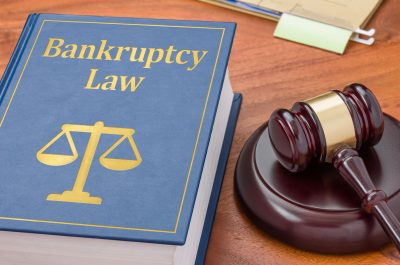There are lots of bankruptcy options available in Oklahoma. The more you know about bankruptcy the better you’ll be at considering bankruptcy options available to you. Declaring bankruptcy in Oklahoma will affect your credit report along with your finances and perso nal life. Your credit score is often a low during the time you were struggling to pay bills and leading up to the bankruptcy. With each missed credit card payment, auto payment or mortgage payment, your credit will take a hit. If you decide to declare bankruptcy, your credit score will decrease further. A bankruptcy remains on your credit report for up to 10 years. There is a strong chance that your credit score will be low following a bankruptcy. However, you don’t have to wait 10 years to rebuild your credit. Most individuals significantly raise their credit score in a matter of just a few months or years. The following is a list of helpful steps to follow:
nal life. Your credit score is often a low during the time you were struggling to pay bills and leading up to the bankruptcy. With each missed credit card payment, auto payment or mortgage payment, your credit will take a hit. If you decide to declare bankruptcy, your credit score will decrease further. A bankruptcy remains on your credit report for up to 10 years. There is a strong chance that your credit score will be low following a bankruptcy. However, you don’t have to wait 10 years to rebuild your credit. Most individuals significantly raise their credit score in a matter of just a few months or years. The following is a list of helpful steps to follow:
-
Review your Credit Report:
The process of rebuilding your credit begins first with gaining an understanding as to where you currently stand. You can access one free credit report a year from the major credit reporting companies, Experian, TransUnion, and Equifax. Once you obtain your copy, you should assess your credit score and also review your credit report for any inaccuracies.
-
Always Pay your Bills on Time:
Your payment history will greatly impact your credit score, accounting for 35% of your overall rating. One of the most important and easiest ways to bring up your credit score is to pay bills on time. It can be helpful to place reminders in your calendar each month in advance of the due date of important bills. Automatic payments, offered by many companies, ensure your bills are paid on time.
-
Apply for Credit Cautiously:
Obtaining credit cards can play an important role in rebuilding your credit. If you do not keep a credit card during your bankruptcy, it is wise to apply for one sometime after your bankruptcy has been discharged. You may need to apply for a secured card which will require a security deposit with the issuer. Be careful to put only minimal charges that you know you can pay in full on the card so that you do not find yourself in a negative financial position again.
-
Know your limits:
In applying for credit, ensure you are aware of the limits on your credit cards and keep your balances well below them. Use credit cards sparingly and pay all bills on time.
-
Be Wary of Advertised Credit Repair Services:
Following your bankruptcy, you will likely receive advertisements from companies offering promises to rebuild your credit. Be wary of these companies, as many will charge hefty fees and do little to effectively help you.
-
Obtain a Loan:
Several years after your bankruptcy, it can be wise to apply for a car loan or other line of credit. Be sure it is affordable and can be successfully paid off.
-
Do not close accounts:
Do not close any lines of credit that you still have open following a bankruptcy as this can reduce the amount of credit available to you and further reduce your credit score.
Claremore Attorneys About Bankruptcy Options:
The compassionate Bankruptcy Attorneys at Kania Law Office want to see each and every client leave our office with a renewed financial future. We will evaluate your assets, debts, and income to determine which bankruptcy option is best for you. We’ll provide you with a full explanation of both the benefits and drawbacks to declaring either Chapter 7 bankruptcy or Chapter 13 bankruptcy. By knowing your bankruptcy options you can be sure that you’ve made the most informed decision concerning filing for bankruptcy. Contact us today to schedule your free consultation.
